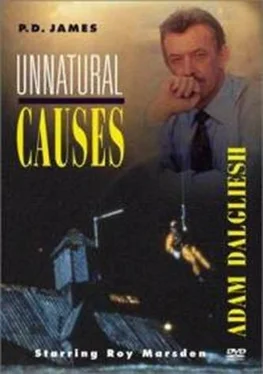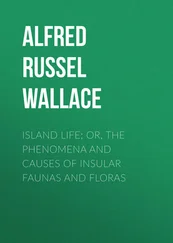P James - Unnatural Causes
Здесь есть возможность читать онлайн «P James - Unnatural Causes» весь текст электронной книги совершенно бесплатно (целиком полную версию без сокращений). В некоторых случаях можно слушать аудио, скачать через торрент в формате fb2 и присутствует краткое содержание. Жанр: Детектив, на английском языке. Описание произведения, (предисловие) а так же отзывы посетителей доступны на портале библиотеки ЛибКат.
- Название:Unnatural Causes
- Автор:
- Жанр:
- Год:неизвестен
- ISBN:нет данных
- Рейтинг книги:4 / 5. Голосов: 1
-
Избранное:Добавить в избранное
- Отзывы:
-
Ваша оценка:
- 80
- 1
- 2
- 3
- 4
- 5
Unnatural Causes: краткое содержание, описание и аннотация
Предлагаем к чтению аннотацию, описание, краткое содержание или предисловие (зависит от того, что написал сам автор книги «Unnatural Causes»). Если вы не нашли необходимую информацию о книге — напишите в комментариях, мы постараемся отыскать её.
Unnatural Causes — читать онлайн бесплатно полную книгу (весь текст) целиком
Ниже представлен текст книги, разбитый по страницам. Система сохранения места последней прочитанной страницы, позволяет с удобством читать онлайн бесплатно книгу «Unnatural Causes», без необходимости каждый раз заново искать на чём Вы остановились. Поставьте закладку, и сможете в любой момент перейти на страницу, на которой закончили чтение.
Интервал:
Закладка:
“There is little more to say. The return of the chopper to Jane Dalgliesh was no more difficult than stealing it had been. The plastic cycling suit was cut into shreds and floated out on the ebb tide. I took the flesh off the knuckles of Maurice’s hands with acid from the dark room and Digby posted his parcel. It was all quite simple. All according to plan. And now there is only the last chapter. In a few days’ time I shall be able to dictate this again. I feel no particular hatred for Digby. I shall be glad when he is dead but I am quite happy to picture his agony without wanting to see it. But I wish I could have been there when Maurice Seton died.
“And that reminds me of the last explanation of all. Why wasn’t I content for his dead body to be left in London, a bundle of flesh and clothes in a Paddington gutter? The reason is simple. We had to take off his hands. Those tell-tale hands with the knuckles torn to the bone where he had battered them against his coffin lid.”
The voice had finished. For a few seconds the tape ran on. Then Reckless leant across and it clicked to a stop. Without speaking he bent to pull out the cord. Jane Dalgliesh got up from her chair and with a murmured word to Latham went out to the kitchen. Almost at once Dalgliesh heard the splash of running water and the chink of a kettle lid. What was she doing, he wondered. Getting on with preparing the lunch? Making fresh coffee for her visitors? What was she thinking? Now that it was all over was she even interested in that tumult of hate which had destroyed and disrupted so many lives including her own? One thing was certain. If she did later talk about Sylvia Kedge she wouldn’t indulge in sentimental regrets of “If only we had known! If only we could have helped her!” To Jane Dalgliesh people were as they were. It was as pointlessly presumptuous to try to change them as it was impertinent to pity them. Never before had his aunt’s uninvolvement struck him so forcibly; never before had it seemed so frightening.
Latham slowly released himself from his self-conscious pose in front of the fire and sank down into the empty chair. He laughed uncertainly. “Poor devil! Killed because of his choice of a nightdress. Or was it because of his choice of bedroom?”
Reckless didn’t answer. Carefully he curled the flex of the tape recorder then tucked the machine under his arm. Turning at the door he spoke to Dalgliesh. “We’ve dredged up the sidecar. It was within twenty yards of the spot you marked. Another lucky guess, Mr. Dalgliesh.”
Dalgliesh could picture the scene. It would be pleasant on the bank of the lonely sluice in the early morning sun, a green peace broken only by the distant rumble of traffic, the singing water, the deep voices of the men as they bent to the tackle, the squelch of mud as the waders sucked at the riverbed. And then the thing they sought would break surface at last, shaped like a gigantic striped marrow, the black hull festooned with weeds and glistening as the gouts of mud slipped away. He had no doubt that it looked very small to the band of toiling policemen as they urged and steadied it towards the bank. But then, Maurice Seton had been a small man.
When Reckless had left, Latham said belligerently: “I must thank you for saving my life.”
“Must you? I should have thought it was the other way round. It was you who kicked her off the roof.”
The reply was quick, defensive. “That was an accident. I never meant her to fall.”
Of course not, thought Dalgliesh. It had to be an accident. Latham was the last man to live with the thought that he had killed a woman, even in self-defence. Well, if that was the way he had decided to remember it, he might as well begin now as later. And what the hell did it matter anyway? He wished that Latham would go. The thought of gratitude between them was ridiculous and embarrassing, and he was too sore in mind and body to relish a morning of small talk. But there was something he needed to know. He said: “I’ve been wondering why you went to Tanner’s Cottage last night. You saw them I suppose-Digby and Kedge?”
The two square envelopes propped side by side were starkly white against the grey stones of the chimney piece. He would have to open Deborah’s letter soon. It was ridiculous and humiliating, this urge to throw it into the fire unread, as if one could with a single assertive gesture burn away all the past.
He heard Latham’s voice: “Of course. The first evening I arrived. I lied about the time, incidentally. I was here soon after six. Soon afterwards, I walked along the cliff and saw the two figures with the boat. I recognised Sylvia and I thought that the man was Seton although I couldn’t be sure. It was too dark to see what they were up to but it was obvious that they were shoving the dinghy out to sea. I couldn’t see what the bundle was in the bottom of it, but afterwards I could guess. It didn’t worry me. Maurice had it coming to him as far as I was concerned. As you seem to have guessed, Dorothy Seton sent me that last letter he wrote to her. I suppose she expected me to avenge her. I’m afraid she mistook her man. I’ve seen too many second-rate actors make fools of themselves in that role to fancy playing it myself. I hadn’t any objection to letting someone else do the job, but when Digby was murdered I thought it was time I found out what Kedge was playing at. Celia told us that Sylvia was planning to see Reckless this morning; it seemed prudent to get in first.”
It would be futile, of course, to point out that Latham could have saved Digby’s life by speaking sooner. And was it even true? The murderers had their story ready: the bet with Seton; the experiment that went horribly wrong; the panic when they discovered that Maurice was dead; the decision to take off the battered hands in an attempt to cover up. Would it really have been possible without a confession to prove that Maurice Seton hadn’t died a natural death?
He gripped Deborah’s letter between his left thumb and rigidly bandaged palm and tried to insinuate the tips of his right-hand fingers under the flap, but the tough paper resisted him.
Latham said impatiently: “Here, let me do it!” Under his long nicotine-stained fingers the envelope ripped open. He handed it to Dalgliesh: “Don’t mind me.”
“It’s all right,” said Dalgliesh. “I know what’s in it. It can wait.” But he was unfolding the sheet as he spoke. There were only eight lines. Deborah had never been verbose even in her love letters but there was a brutal economy about these final staccato sentences. And why not? Theirs was a basic human dilemma. You could either spend a lifetime together laboriously exploring it, or you could dispose of it in eight lines. He found himself counting and recounting them, calculating the number of words, noticing with unnatural interest the spread of the lines, the details of the handwriting. She had decided to accept the job offered to her at the firm’s American house. By the time he received this she would be in New York. She could no longer bear to loiter about on the periphery of his life waiting for him to make up his mind. She thought it unlikely that they would ever see each other again. It was better for them both that way. The sentences were conventional, almost trite. It was a goodbye without panache or originality, even without dignity. And if it had been written in pain there was no sign of it in that confident hand.
He could hear Latham’s high arrogant voice running on in the background, saying something about an appointment at an Ipswich Hospital to have his head X-rayed, suggesting that Dalgliesh might go with him and have his hand examined, speculating spitefully on what Celia would have to pay in lawyer’s fees before she could get her hands on the Seton fortune, attempting once more with the clumsiness of a schoolboy to justify himself for the death of Sylvia Kedge. Dalgliesh turned his back on him and, taking his own letter from the mantelpiece, laid the twin envelopes together and tore at them impatiently. But they were too strong for him and, in the end, he had to throw them whole into the fire. They took a long time to burn, each separate sheet charring and curling as the ink faded so that, at last, his own verses shone up at him, silver on black, obstinately refusing to die, and he could not even grasp the poker to beat them into dust.
Читать дальшеИнтервал:
Закладка:
Похожие книги на «Unnatural Causes»
Представляем Вашему вниманию похожие книги на «Unnatural Causes» списком для выбора. Мы отобрали схожую по названию и смыслу литературу в надежде предоставить читателям больше вариантов отыскать новые, интересные, ещё непрочитанные произведения.
Обсуждение, отзывы о книге «Unnatural Causes» и просто собственные мнения читателей. Оставьте ваши комментарии, напишите, что Вы думаете о произведении, его смысле или главных героях. Укажите что конкретно понравилось, а что нет, и почему Вы так считаете.












